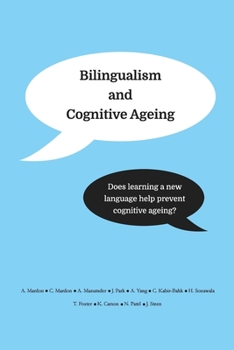Bilingualism and Cognitive Ageing: Does learning a new language help prevent cognitive ageing?
Language is the key to communication and connection regardless of whether it is through digital platforms, body language, or simply face-to-face conversation. Therefore, it is no wonder that so many people seek out the opportunity to learn and teach others new languages; it allows us to connect with more people across the globe. Despite this, it was widely believed in scientific circles that bilingualism was a disadvantage-something that might slow down the developing brain-rather than a social and cognitive advantage. Bilingualism and Cognitive Ageing: Does learning a new language help prevent cognitive ageing? strives to examine the recent research that disproves this out-dated theory, with a focus on how bilingualism affects our cognitive ageing. Our discussion begins with an exploration of the history of research on the cognitive effects of bilingualism and ends with a look at the common misconceptions that people hold and how they may be supported by popular culture. Along the way, the connection between specific ages and bilingualism-including when to learn a language-the effects that bilingualism has on the brain, and the most influential studies and scientists that have brought us to these conclusions will also be discussed. Bilingualism and Cognitive Ageing: Does learning a new language help prevent cognitive ageing? is a brief exploration that strives to educate the general reader on the history and science behind bilingualism and cognitive ageing.
Format:Paperback
Language:English
ISBN:1773696165
ISBN13:9781773696164
Release Date:September 2021
Publisher:Golden Meteorite Press
Length:60 Pages
Weight:0.22 lbs.
Dimensions:0.1" x 6.0" x 9.0"
Customer Reviews
0 rating





